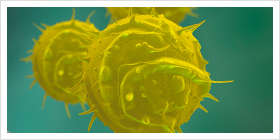
Immunometabolism
Welcome to the emerging frontier of immunometabolism. A decade ago, immunology and metabolism were seen as two distinct areas of study. However, we now know that specific metabolic activities are required for proper immune cell differentiation and function. In tumor microenvironments, immune cells may even alter their metabolism to compete with tumor cells for limiting nutrients.
Glucose metabolism in Naïve vs Effector T cells
What does your car and T cells have in common? They both shift gears! You can shift gears on your car to change the way the engine’s power is used to match driving conditions; when you’re going uphill, you switch to a higher gear. Similarly, when T cells are activated, they change the way they generate energy to match functional needs. This makes sense because activated T cells (known as effector T cells) require more energy and biomass to support growth, proliferation and effector functions.
While cars run on gas, the main fuel for T cells is glucose. Each glucose molecule is broken down into pyruvate while generating 2 ATP molecules. Naïve T cells completely oxidize pyruvate through oxidative phosphorylation to generate 36 ATPs per glucose molecule. However, when T cells are activated and become effector T cells, glycolysis is used to produce 2 ATPs per glucose molecule. Continue reading “Measuring Metabolic Changes in T cells with the Lactate-Glo Assay”
